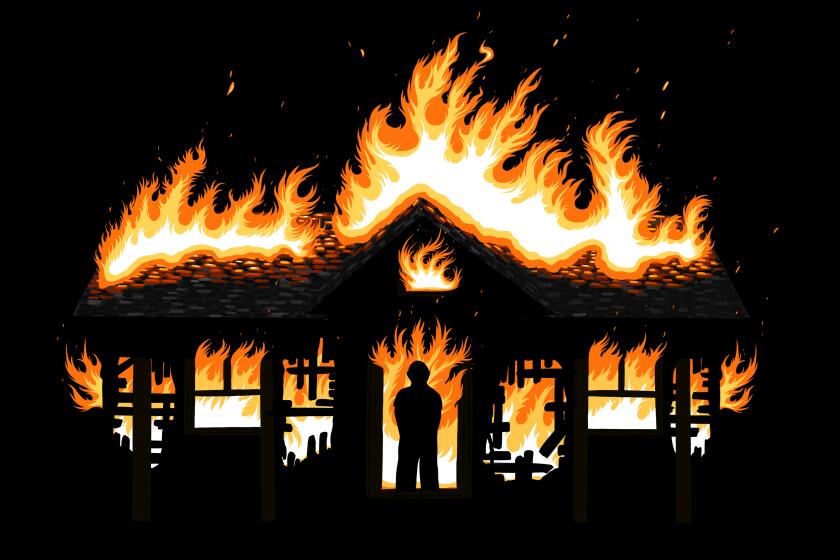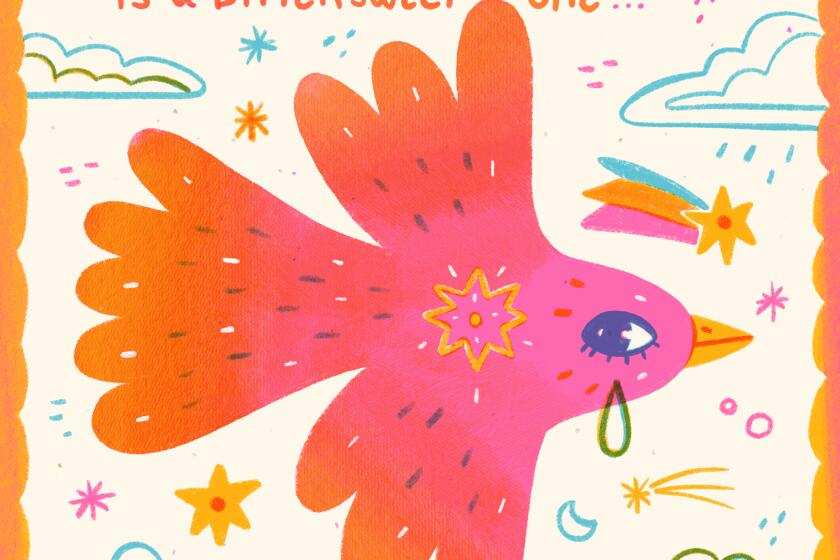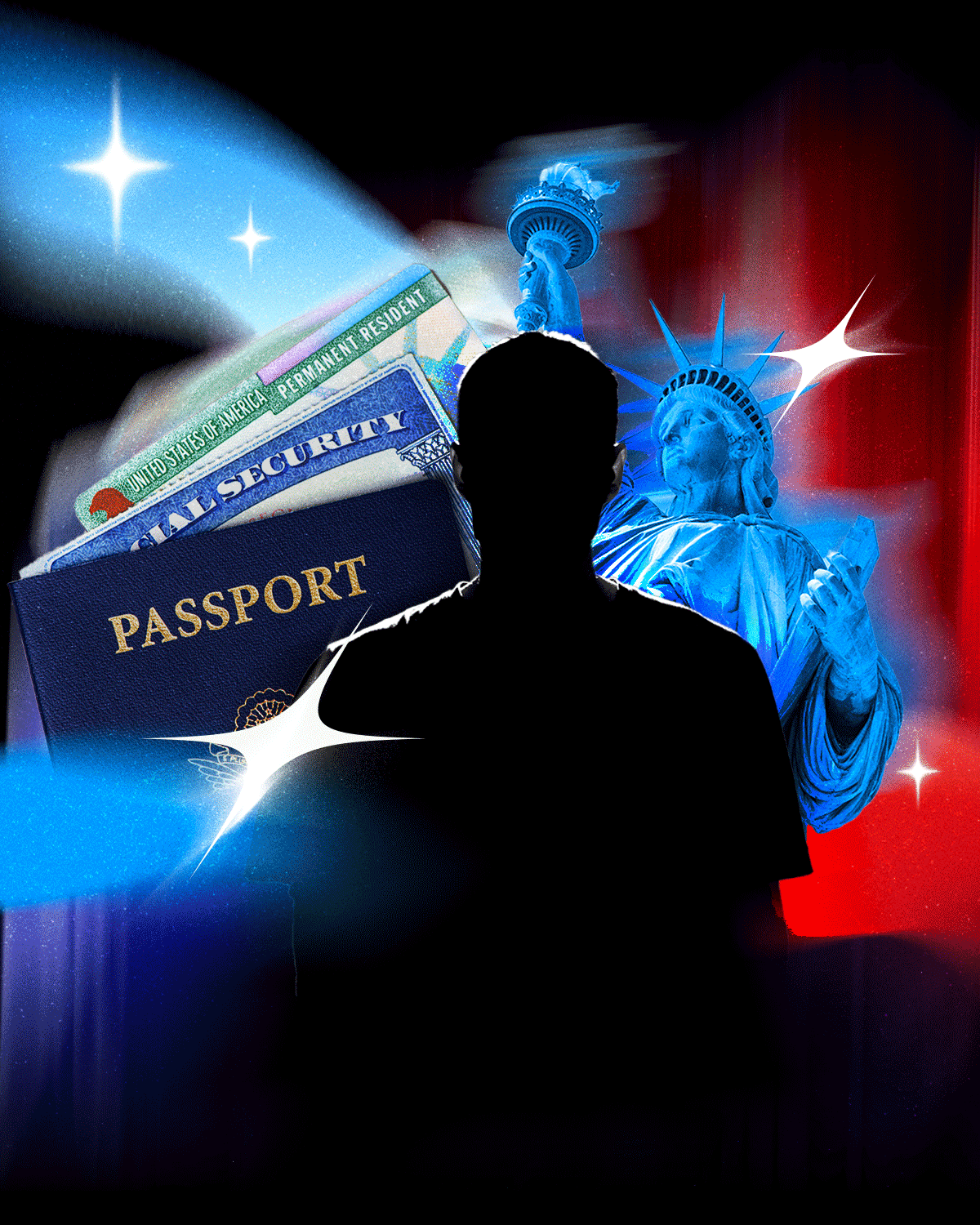
- Share via
It took me 19 years to return to El Salvador — the place where I was born and emigrated from in 1999 when I was 9 years old. Dad fled in 1991, a year before the civil war ended and I was just a few months old. Mom emigrated weeks after I turned 5 because as a woman, every time she tried to get a job during “peacetime,” she was harassed — common practice in El Salvador.
Her younger sister, Mali, overstayed her tourist visa in 2002 after she lost her job due to the 2001 earthquakes; and their youngest sister, Lupe, ran away from her former-Batallón Atlacatl abusive husband in 2005. Despite what we have survived, none of our migrations have been deemed worthy enough of a legal status by the United States government, and so all of us have been undocumented for some, or all, of the years we’ve called California our home.
For 19 years, I watched my country from afar. At first, scouring Spanish language news for a brief mention of El Pulgarcito de América.
An exploration of marketing terms like ‘200%’ and how that’s shaped our identity.
Then, in the mid-2000s, El Salvador was all over Primer Impacto. In the minds of many Americans, we went from obscurity to being equated with gang members. The nation my parents and aunts had left as young adults seemed to be reverting back to a time that closely resembled the civil war they seldom talked about.
When I graduated college, I was no longer undocumented but held temporary protective status (TPS) like many Salvadorans, Haitians and Nepalese. Even with TPS, I couldn’t return to my homeland because I didn’t meet the criteria for an “advanced parole” to legally return into the United States.
By 2014, El Salvador’s murder rate broke into English-language news. By 2016, we were lumped into “The Iron Triangle” and the “crisis of unaccompanied children at the border.” It was frustrating to see how Americans seemed to just be learning about gangs, Central America and child migration.
Whenever we watched the news, Dad — a survivor of a civil war — vowed to never return to El Salvador, even if he were granted a green card. Meanwhile, my Mom and aunts patiently hoped that President Bush, then Obama, then anyone, passed any sort of immigration reform.
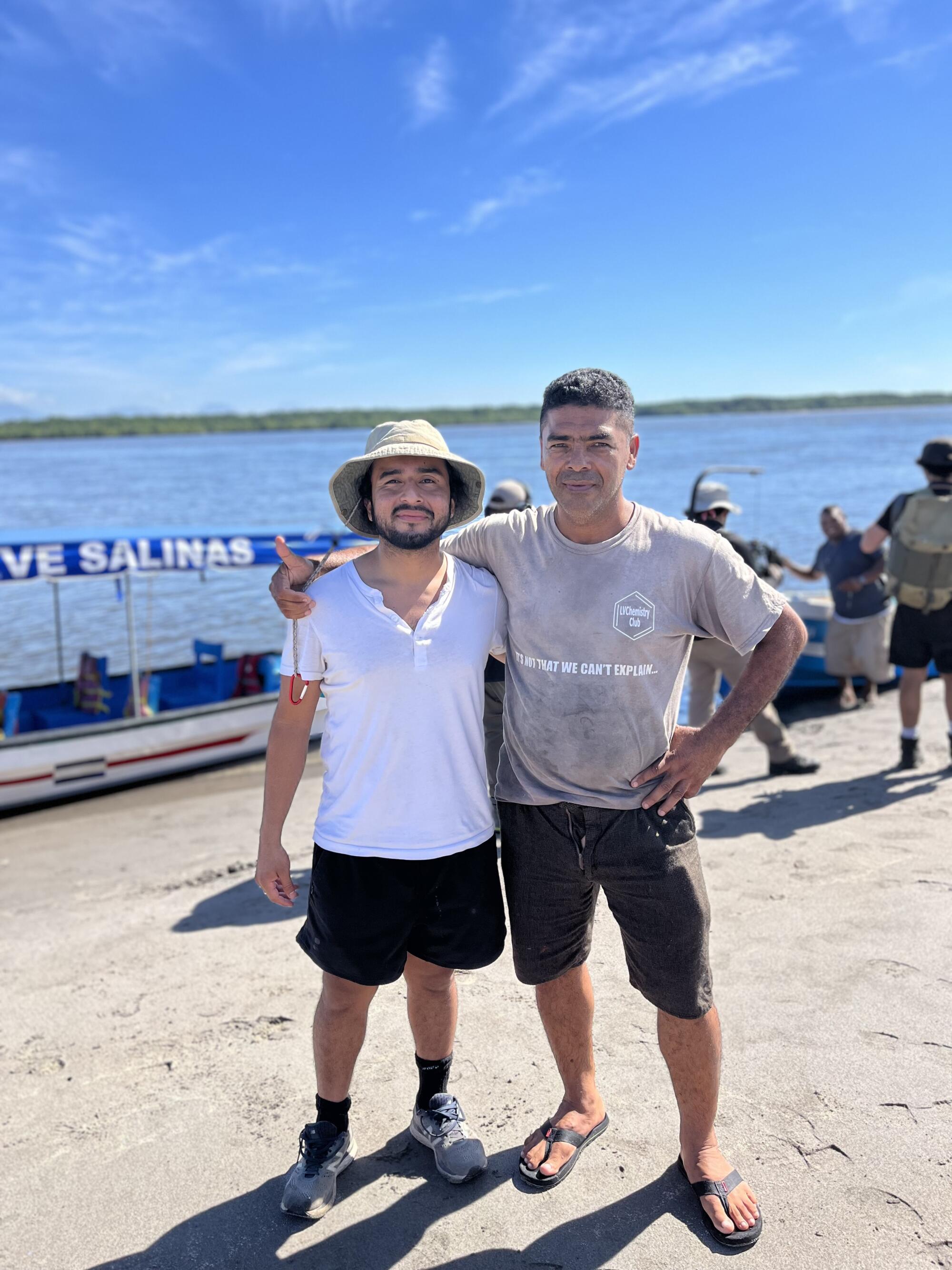
My grandparents didn’t fully tell us what they were living through in El Salvador: “Yeah, it’s bad in that part of the country, but not here. Don’t worry.” I only got real updates of “La Situación” from my brief Facebook interactions with my cousin Julia who was 5 years old when I emigrated in 1999.
“Here, we’re controlled by La MS, they don’t do anything to us, but over at the other end of town, we can’t go because that’s controlled by los de la 18,” was something that Julia, a teenager, might casually mention.
My obsession with gaining legal status in order to see my grandparents and the hometown I’d grown up in was now met with caution. I grew angry and frustrated that I felt safe in the United States but that safety was a privilege my family members in El Salvador didn’t have. Did I really want to return to a place I’d heard so many bad things about? But my grandparents said it wasn’t that bad.
Who was telling the truth?
I finally returned to La Herradura, when I was 28 years old. My long-awaited trip back wasn’t a celebration, but a mandatory “self-deportation” in order to interview at the U.S. Embassy for my extraordinary abilities (EB-1) visa. My case is one of the first to turn a TPS into an EB-1 visa, so my lawyers had many uncertainties about whether it would actually work.
Learning Spanish wasn’t part of a quest for identity. I was proud of this fact; that I was pursuing fluency on my own terms and not for cultural credibility.
I had my own uncertainties regarding Salvadoran security policies, particularly regarding tattoos (I have two large ones on my body). Maybe because the murder rate was still one of the highest in the world, or maybe because I’d internalized all of the foreign media coverage, or maybe because my own family members said they wanted those “tattooed gangsters dead.”
I spent my first five weeks back in my country mostly indoors at my grandparents’ house.
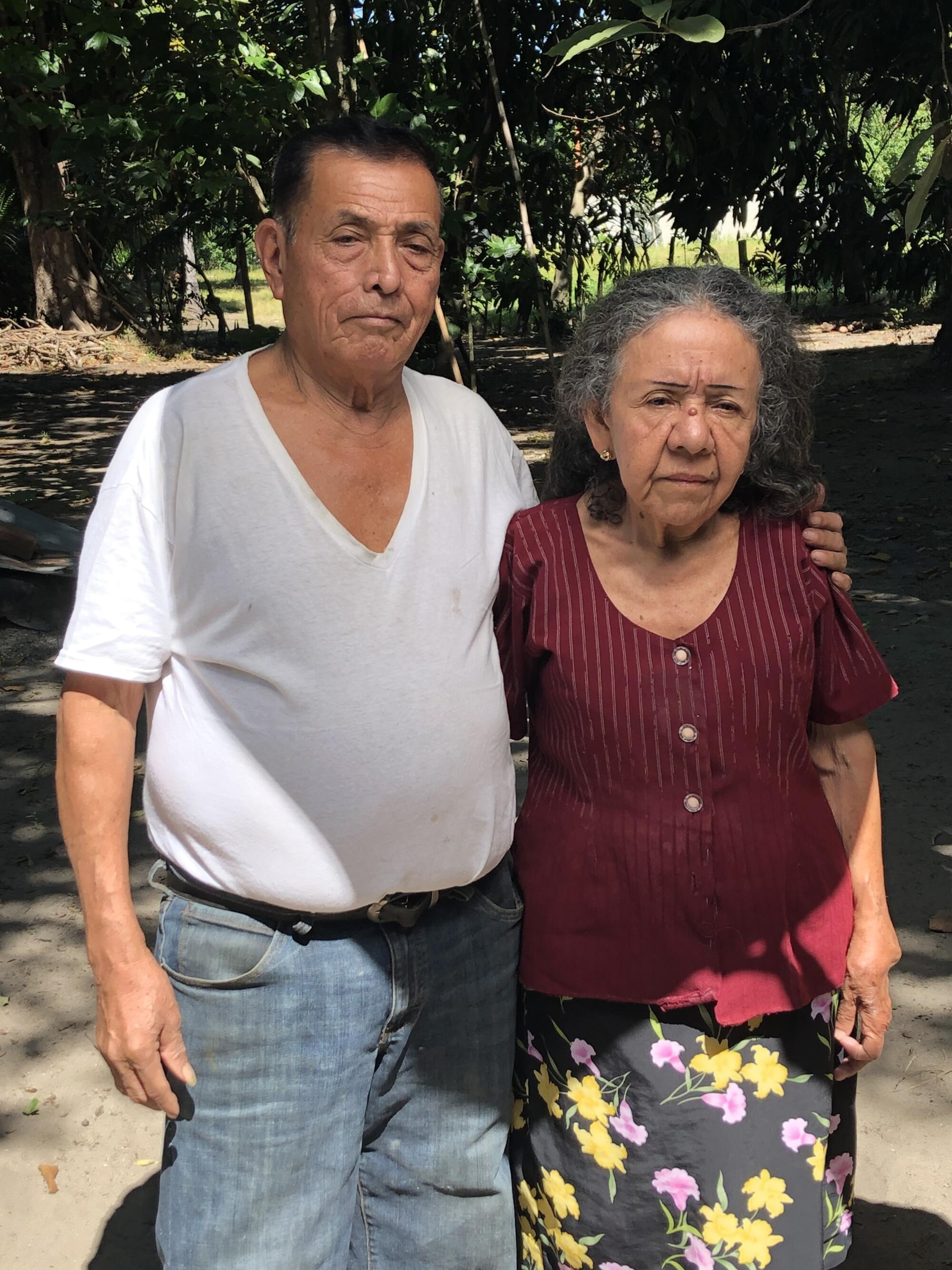
My parents knew people who had returned to El Salvador and who told them “it wasn’t that bad, don’t believe the gringos.” What was my country really like? How had it changed in 19 years? I remember running through the neighbor’s yard, playing tag in the streets without adult supervision, people walking at all hours of the night. During my first five weeks, things felt different. My grandparents locked themselves in the house at 7 p.m.
Multiple nights I heard gunshots. Was I misremembering something? I was afraid for my safety. Had society changed that much? Was it only my family? My town? It’s this questioning that persists in immigrant communities. Most of us don’t have the privilege of returning and forming our own opinions of how our countries have changed.
So we listen to friends at best and read Facebook threads at worst. This opaqueness of what the external world that we have left behind is really like also permeates into our family dynamics.
People become opaque. Obscure. Changed over time, but how? Or why? What changed them? There is only so much a WhatsApp video call or a traditional phone call can do to keep you close to your own family members. Gaining a green card has shown me that much.

Get Involved
I no longer have the bliss of ignorance or the excuse of opaqueness. I can form my own opinions about “La Situación” and about how or why my family’s bonds have deteriorated. There is no manual for us transitioning between immigration statuses.
My family’s experience with this country’s immigration system has made all of us private people. I see this in my friends as well. I don’t remember ever talking to a friend who has had a family member or themselves change immigration statuses talk about the mental health costs, the emotional toll.
The conversations revolve around the material expectations that befall that lone green card holder in the family. I’m aware that I get to take as many things back to “fix” the house everyone left behind, and I get to bring back as much Pollo Campero on the flight back. This transaction everyone can recognize. But what about the guilt of being the only “legal” member? The shame of being granted easy
access back into the United States?
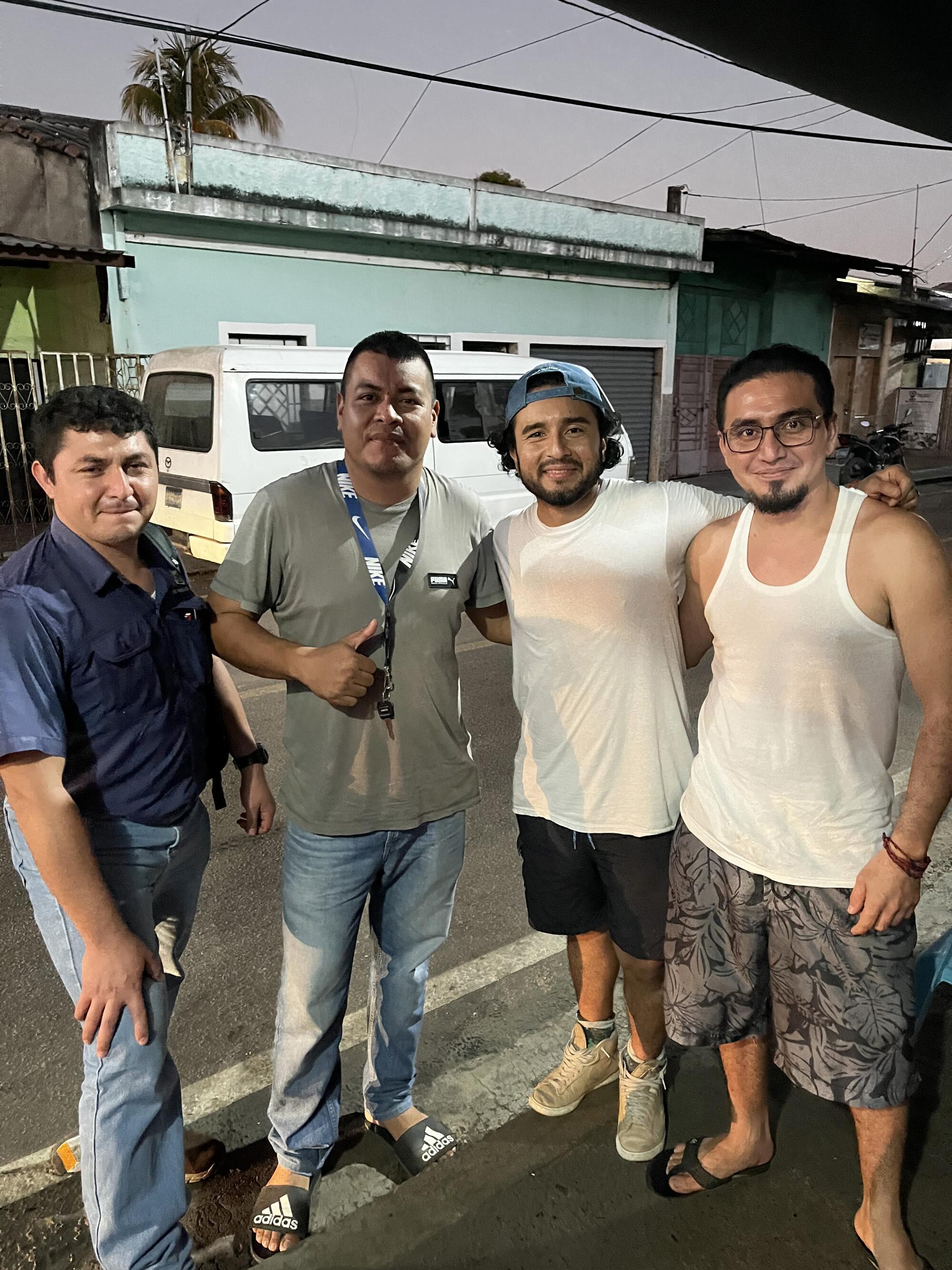
I remember telling myself that a green card would change all my problems, that that small plastic card would make me feel whole. “If I only had a green card …” began many thoughts in my mind that only made me feel like I had no agency, like I couldn’t control my own destiny. But now, I can move freely between countries, and yet, I find myself disillusioned with what immigration has done to family. I can see it. I can feel my grandma’s distance when I hug her, how difficult conversations are.
The six times I’ve returned to my hometown have also placed me in a role I never envisioned, that of my family’s translator. Not of language, but of the life in El Salvador and the life in the United States. In other words, a translator of trauma, of hurt. I find myself explaining to my cousin that her undocumented mother isn’t as rich or as well off as she may think. I find my U.S.-based family explaining that my grandparents don’t want a microwave they don’t know how to use, or a cellphone, or a washing machine. All they really want is more than a phone call, for their family members to return with love and not money.
Growing up in Colombia with my mother, I was able to be with family and embrace the small town we lived in. But creating a new home in Portland makes me feel like a bird, migrating between my two homes.
I see how money is also a coping mechanism. We, as immigrants, need to make our life in a different country make sense, the easiest form to quantify that is through a literal number, a monetary value. There are parts of me that still believe that. I’ve internalized them.
Here, I want to mention that I also have the privilege of having access to a therapist, of time, and money to dedicate to my own well-being. All I’m advocating for, if anything, are more conversations in our communities about being honest about how hard life in this country is. How difficult it is to be away from your loved ones. To stop for a second, and see how we view money, love, distance, our homelands.
The Latinx experience chronicled
Get the Latinx Files newsletter for stories that capture the multitudes within our communities.
You may occasionally receive promotional content from the Los Angeles Times.
If you’re reading this, all I want is to start conversations. If you talk about it, maybe it can help you understand a family member better. I’ll end with what the hardest thing for my family to understand has been: It’s impossible for people who have never been to the United States to really understand what life as an undocumented immigrant is really like in this country.
For those who are undocumented in this country, it’s impossible for them to truly comprehend how their country has changed. There is infinite room for nostalgia to enter the equation from the U.S. thinking of El Salvador. And there is an infinite amount of unrealistic material and emotional expectations from El Salvador looking north.
Let’s acknowledge how difficult it is to be uprooted, to love from afar.
Javier Zamora is the award-winning memoir ‘Solito’ about his harrowing journey as a 9-year-old from El Salvador to the United States. Zamora will write a monthly essay for De Los.
More to Read
The Latinx experience chronicled
Get the Latinx Files newsletter for stories that capture the multitudes within our communities.
You may occasionally receive promotional content from the Los Angeles Times.


